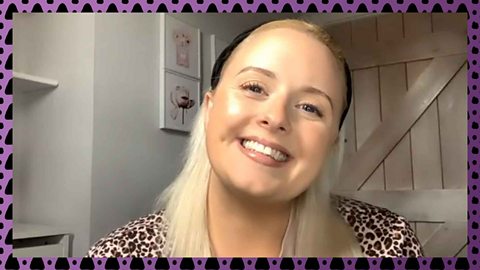
This article was first published in October 2021.
If youÔÇÖre not Someone who is care-experienced is a person thatÔÇÖs spent time being cared for by the local authority. This is usually because they couldnÔÇÖt remain at home (because it was either unsafe for them to be there, or because their parents were unable to look after them at that moment). In rare occasions a young person may stay at home while being cared for by the local authority. yourself, you might know or go to school with someone who is. For National Care Leavers Week, we spoke to young care-leaver Jamie about his experiences of school life while he was living in care and heard how his schoolfriends supported him. We also spoke to Become, a charity for children in care and young care leavers in England, to find out more about how you can support your care-experienced friends at school.

Jamie's story
I entered the care system when I was 6 months old. My mum misused drugs and was unfit to care for me. I then went on to experience lots of different types of care. I lived with 14 different families during my childhood and I spent a lot of my childhood running away from these homes.
I noticed that my journey in school was very different and disturbed compared to my friends. Halfway through my afternoon maths lesson, I would carry out a disappearing act ÔÇô randomly, silently ÔÇô and for the most of the afternoon, I would be gone from class. Some pupils thought I was avoiding or skipping class, some were angry and judgmental, assuming I was getting ÔÇśspecial treatmentÔÇÖ from the school, and others thought I had some sort of health condition. In reality, when I was gone, I would be sat in front of a panel of strangers and next to my mother, who I didnÔÇÖt live with and couldnÔÇÖt see. These meetings made me sad, angry, anxious and disturbed my learning in school.
When I returned, I couldnÔÇÖt concentrate on anything. I had no motivation to learn and would just think about how much I missed my mum and wanted to live a happier life with her. I was only a child. This created many challenges ÔÇô I was suspended from school a few times a month and teachers didnÔÇÖt believe I would achieve anything with my life. My negative reactions led to me being bullied by the majority of my peers for most of my time in school. What I really needed was people who understood how hard my life was and to understand me: Jamie. School was the only escape I had.
How my friends supported me
When the other pupils realised that I grew up in care, some were sympathetic, some were kind and others made judgements, assuming I was a bad kid. I was singled out when all I wanted was to be accepted by my friends.
School was a safe place. Personally, I didnÔÇÖt want to be reminded of the fact I was in care. If I did have an upsetting meeting, it really helped when my friends made jokes and distracted me from it all. Sometimes I just needed someone to listen.
I didnÔÇÖt want to be judged. Just like other kids, I loved video games, enjoyed playing football and loved the Avengers films. I was just an ordinary child. I had a difficult start in life that wasnÔÇÖt my fault. My friends made me feel normal ÔÇô but there is no such thing as normal, not really: many other young people who arenÔÇÖt in care have very different childhoods. We are all unique and have unique challenges. My friends didnÔÇÖt judge me or treat me differently. They invited me to things, never left me out, asked if I was okay and made me laugh when I wasnÔÇÖt.
How you can support your care-experienced friends
We spoke to the charity Become for further advice on what you can do if you have care-experienced friends in school who may need your support. Here is their advice:
Be a good listener
WeÔÇÖve heard from lots of children in care and young care leavers that they want control over who knows about their care experience. TheyÔÇÖre most likely to tell a person who helps them to feel safe, who they trust, and whoÔÇÖs a good listener.

Be respectful and trustworthy
If you find out your friend is in care, be respectful and trustworthy. DonÔÇÖt spread the information around school, or ask intrusive questions, or change your behaviour or attitude towards a person just because theyÔÇÖre in care.

Be open-minded
Try to be open-minded and accepting of the fact that everyone has different things that they go through when theyÔÇÖre growing up. Every family is unique in its own way: some families have a single parent, others have two parents of the same gender, some families are big while some are small, some people live with their grandparents, and some live with foster carers or in a childrenÔÇÖs home.
Remember that everyone's experience is different
Every care-experienced young person is unique and will need different support. For some young people, going into care can feel like a relief. For many others, it can feel extremely stressful.

Show kindness
Most care-experienced people face a lot of stigma and people may pre-judge them based on negative stereotypes. ItÔÇÖs important to see your care-experienced friends as individuals, and support them by showing kindness, patience and understanding.

What kind of support is available if you are a care-experienced young person having difficulties at school?
, a national charity for children in care and young care leavers in England, has friendly and helpful advisors who listen and provide help and advice. BecomeÔÇÖs Care Advice Line is open throughout Monday ÔÇô Friday from 10am ÔÇô 5pm. Freephone 0800 023 2033 or email advice@becomecharity.org.uk.
For more advice and information on living in care and how you can get support in Scotland, Wales and Northern Ireland, visit .

If you need support
You should always tell someone about the things youÔÇÖre worried about. You can tell a friend, parent, guardian, teacher, or another trusted adult. If you're struggling with your mental health, going to your GP can be a good place to start to find help. Your GP can let you know what support is available to you, suggest different types of treatment and offer regular check-ups to see how youÔÇÖre doing.
If youÔÇÖre in need of in-the-moment support you can contact , where you can speak to a counsellor. Their lines are open 24 hours a day, 7 days a week.
There are more links to helpful organisations on 91╚╚▒Č Action Line.

Dear Younger Me: Caothan
Caothan tells his younger self to ask for support in getting through the hard times.

How to support a friend with their mental health
Katie Thistleton with advice from Young Minds on how to support a friend with their mental health.

Tips for coping with seeing loved ones struggling
Therapist Kemi Omijeh gives her advice for coping when your loved ones are going through a hard time.
